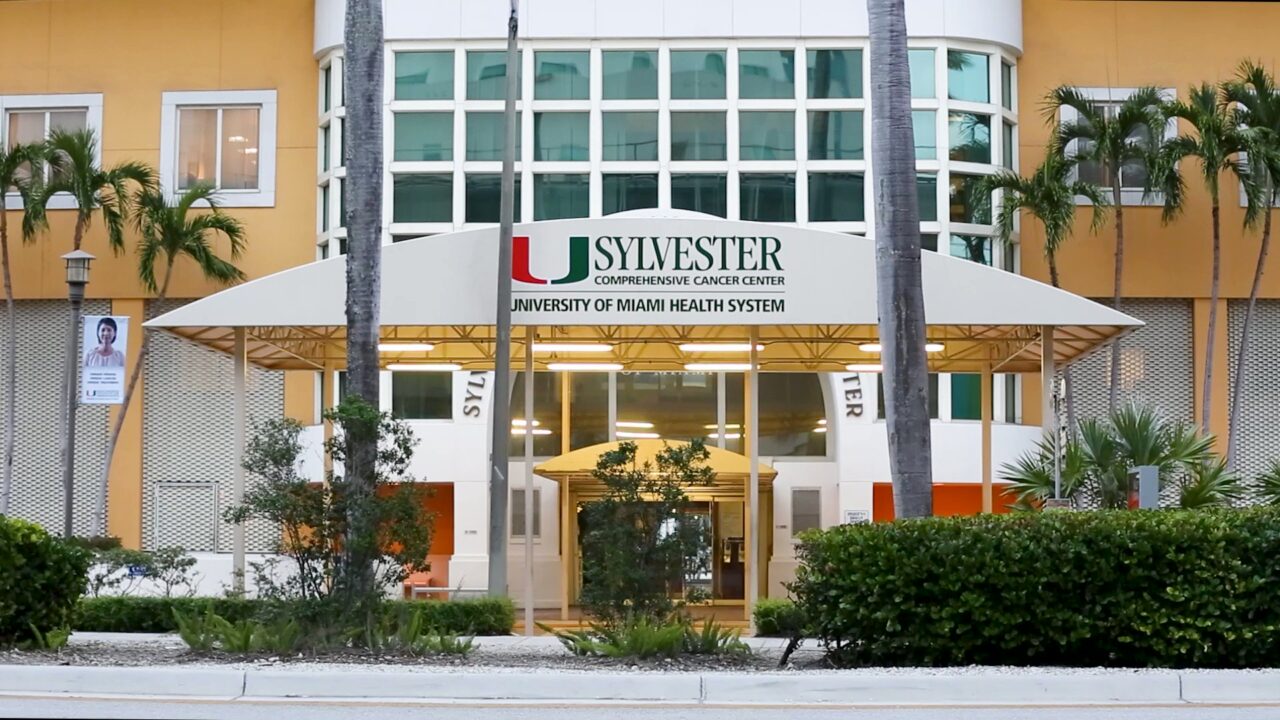When it comes to cancer disparities, community may count. A new study published August 21 in the Journal of the National Cancer Institute showed that although Hispanic non-small cell lung cancer patients tend to be diagnosed at later stages than White patients, that disadvantage disappears in South Florida.
The first-of-its-kind study examined disparities in lung cancer staging across all lung cancer patients in the state of Florida and found that while racial and ethnic minorities tend to be diagnosed at later stages than White patients in most of the state, that disadvantage disappears for most Hispanic populations living in South Florida. Cancers diagnosed at later stages are generally harder to treat and result in worse outcomes than those caught at early stages.
This lack of disparity in South Florida could be due to the region’s high proportion of Hispanic communities, including the fact that more health care providers there are Hispanic, the researchers said. This representation in the workforce could improve health care access and patient trust as compared to regions with fewer Hispanic or Spanish-speaking providers.
“We have to start thinking about the context in which minorities live. When you have a diverse population and a more diverse workforce that might be more in tune with the population in the sense of speaking the same language, having the same cultural context, then maybe we can have better outcomes,” – said Paulo Pinheiro, who led the study.
Pinheiro is Associate Professor of Epidemiology at Sylvester Comprehensive Cancer Center, part of the University of Miami Miller School of Medicine.

The study is the first to examine lung cancer staging disparities across all lung cancer patients in the state of Florida and the first to look at those disparities by ethnic subpopulations. The study looked at Hispanic, non-Hispanic Black, and White populations in Florida, as well as Hispanic subpopulations: Mexican, Puerto Rican, Cuban, Spaniard, Dominican, Central American and South American lung cancer patients.
The researchers used data on all patients diagnosed between 2005 and 2018 with non-small cell lung cancer, the most common type of lung cancer, from the Florida Cancer Data System which tracks all cancer cases in the state.
They broke the data down into two groups: one of patients living in South Florida, comprised of Miami-Dade, Palm Beach, Broward and Monroe counties; and one of patients in the rest of the state. South Florida has a uniquely diverse community, the researchers said, including a large Hispanic population that contains subpopulations with a wide range of socioeconomic statuses.
Outside of these South Florida counties, the rest of the state’s racial and ethnic makeup is similar to that of the U.S. overall, and Hispanic people in these regions tend to have lower incomes and are not as well represented in the health care workforce.
“South Florida is a different ballgame altogether. The dynamic here is different,” – said Dr. Pinheiro.
They found that in the dataset of patients in the state minus the four South Florida counties, non-Hispanic Black patients were 33% more likely to be diagnosed with advanced stages of lung cancer as compared to White patients, and Hispanic patients were 12% more likely. In South Florida, Hispanic patients and White patients had nearly the same likelihood of advanced-stage diagnoses. Non-Hispanic Black patients in South Florida were still more likely to be diagnosed at later stages, although the difference was not as large as in the statewide data.
“A possible explanation for this difference could be a better cultural alignment between patients and physicians in South Florida. It’s not only a shared language, but increased patient trust that could lead to earlier diagnoses and possibly to better outcomes,” – said Qinran Liu, first author of the study and a former doctoral student at the University of Miami who is now a postdoctoral fellow at the American Cancer Society in Atlanta.

Their findings held up even when the researchers corrected for factors like having insurance, socioeconomic status, and living in an urban or rural environment. The researchers did not look at patient outcomes in this study, but previous research has correlated early-stage diagnoses with better outcomes for lung cancer patients.
Dr. Liu is extending this research approach to other regions in the U.S., aiming to uncover broader patterns in cancer disparities. Her current work focuses on the effects of racial segregation, including redlining and gentrification, on cancer staging disparities in the Mid-Atlantic region.
Dr. Pinheiro is also leading similar studies examining Florida’s liver cancer disparities. His disparity research focuses on these two cancers because of their known risk factors — namely, smoking, alcohol consumption and hepatitis — and thus, targeted interventions for prevention may have greater effects.
“The U.S. is becoming very diverse, very mixed. We really have to be able to answer to the needs of each of these populations,” – Dr. Pinheiro said.
Other posts featuring Sylvester Comprehensive Cancer Center.


